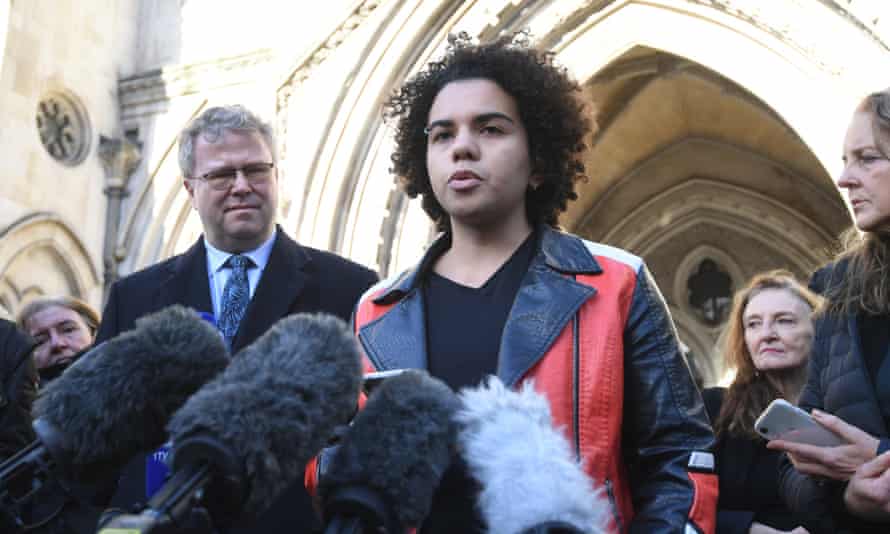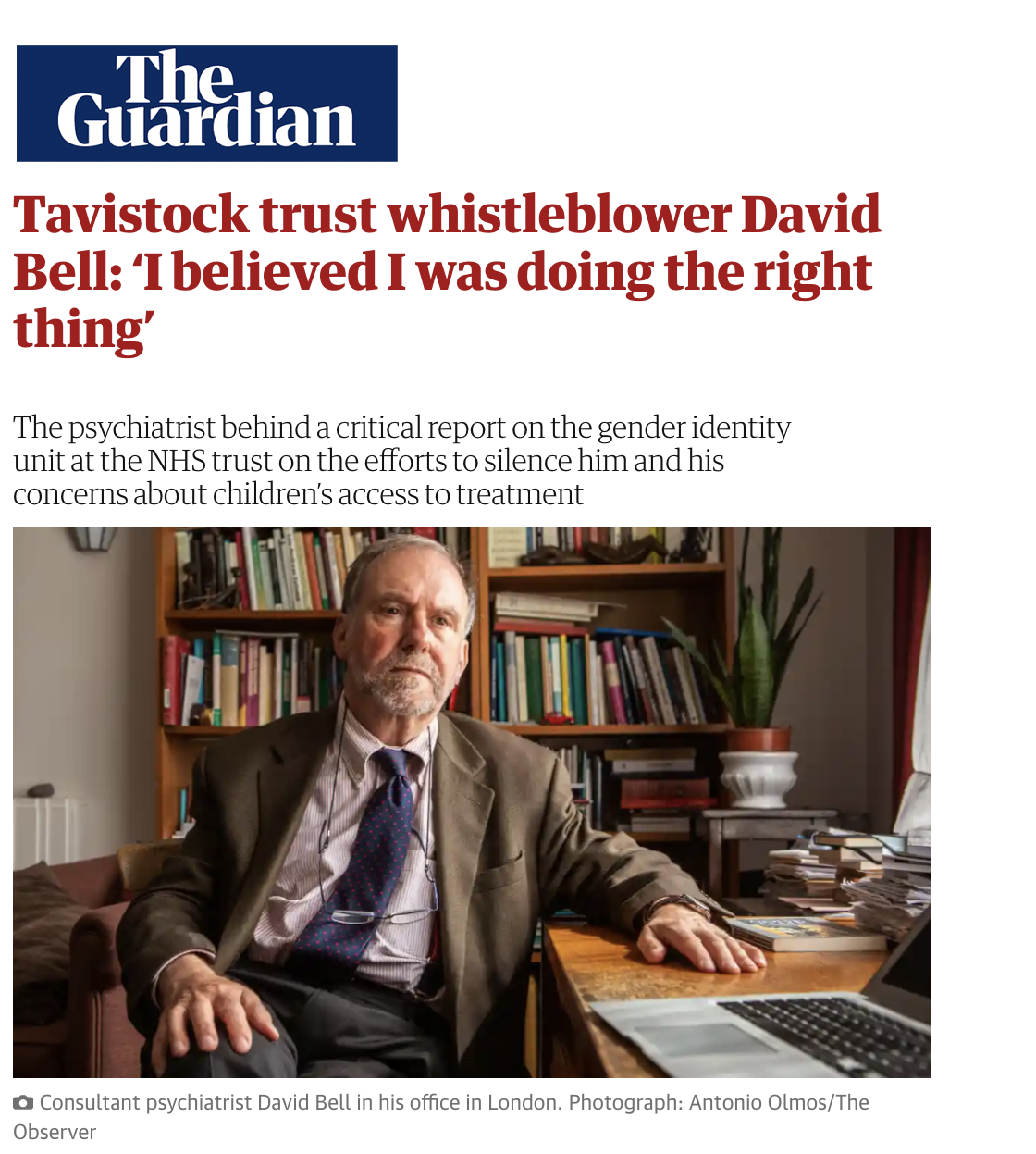To talk to David Bell is to have some small sense of what it might be like to be his patient. At 70, his energy puts mine to shame. He cycles everywhere. His diary is full. I’ve rarely interviewed someone so engaged (there are days when he emails me several times, each message more exacting than the last). But ask him a question and he’s unlikely to rush in. Certainty is not a given. His open-mindedness belongs to someone far younger. Above all, he is so calm: a reassuring presence. There are times during our conversation when it’s hard to believe we’re discussing experiences that must have caused him so much anxiety and even, at moments, some fear.
Bell, a distinguished psychiatrist and practising psychoanalyst, is the doctor who in 2018 wrote a controversial report about the activities of the gender identity development service (GIDS), a clinic at the Tavistock and Portman NHS foundation trust in north London, where he worked in adult services from 1995 until his retirement earlier this year. GIDS, the only clinic of its kind in England, specialises in treating children with gender identity issues and in recent months has been in the news even more than usual. Last December, a judgment by the high court ruled that those under the age of 16 were unlikely to be mature enough to give informed consent to the prescription of puberty blockers (such drugs delay the development of secondary sex characteristics in patients, in theory enabling children more easily to transition into their desired gender identity as an adult). This ruling, the result of a judicial review brought by 23-year-old Keira Bell – born female, she was prescribed blockers by GIDS at 16 and now regrets her transition – has effectively curtailed medical intervention for children with gender dysphoria. (The Tavistock is to appeal; the case will be heard in June. David Bell will be what is technically called an intervenor in the appeal, which means he can give evidence.)
Bell’s report anticipated the concerns of the high court and he feels vindicated by its judgment. “It was jaw-dropping,” he says. “Because it was very strong.” As he read it, he was struck by details that have not been widely reported, particularly those involving a lack of data, a problem he had raised himself (GIDS was unable to produce for the court any data relating to outcomes and effects, whether desirable or adverse, in children who had been prescribed puberty blockers; nor could it provide details of the number and ages of children who had been given them). But the experience was painful, too: “I felt concerned that we’d moved away from the values [of care] the trust has embodied for so long.” He is astonished the judgment seems to have had so little effect on the organisation of GIDS. “Ordinarily, heads would roll,” he says. “The management structure has changed slightly, but it feels like window-dressing.”

But whatever the court’s verdict, it cannot change the fact that the organisation to which Bell devoted the greater part of his working life did not respect his rights as a whistleblower. Nor has it taken the heat out of the debate about the medical treatment of trans children – if anything, the discourse has only grown more entrenched – which is why he’s talking to me now. This is the first time he has spoken in detail about his experiences: about how he came to write his report and the grave consequences that doing so had for him. His retirement means that the threats of disciplinary action against him are over. He is free, at last, to say what he likes.
Writing the report was, he says, a matter of conscience. In 2018, 10 GIDS staff brought their worries to him unsolicited, a figure he estimates to be around a third of those then working there. He had no choice but to act and would do the same again. Nevertheless, it was not easy. Far from being grateful to him for alerting it to a potentially dangerous situation, the trust’s position appeared defensive – having read the correspondence involved, perhaps aggressively so – almost from the start. It tried to silence him and instituted proceedings against him. Was he frightened? Yes and no. “I believed I was doing the right thing,” he says. “I never doubted that, and most of my colleagues in the adult department supported me, so when I went up to my floor at the Tavistock, I could be oblivious and get on with my work. The real betrayal wasn’t of me personally, but of the trust’s duty to whistleblowers and to its wider mission [since 1920, the Tavistock has specialised in talking cures]. But the thing that enables you to sleep at night is a good lawyer.” To pay for this lawyer, he launched two crowdfunding appeals.
How, exactly, did the trust attempt to silence him? The trust told the Observer that it is proud of the GIDS service, which is committed to providing high-quality support and care for young people experiencing issues with gender dysphoria, and that the claims made by Dr Bell are historical and were dealt with following proper processes at the time. It vigorously denies that any steps were taken against Bell for being a whistleblower. It says that it has a duty to safeguard its staff, who have faced intense, personalised and upsetting harassment, and has taken a series of actions, following proper processes, to do this.
By Bell’s telling, its approach was at once Kafkaesque and cack-handed. In the months after he delivered his report, a book to which he had written an introduction was removed from the Tavistock’s library. When he spoke at a conference about de-transition in Manchester, a member of GIDS’ staff travelled there, he says to spy on him. “They wrote it up very accurately,” he says, with a laugh. Finally, he was told that he was not allowed to write about, or to talk in public about, anything that wasn’t directly connected to his NHS employment, “which sounded odd to me… was it the case that if I was going to write a paper about the psychology of King Lear, I’d have to ask permission?” (As his lawyer informed him, this was against the terms of his contract.)
3

